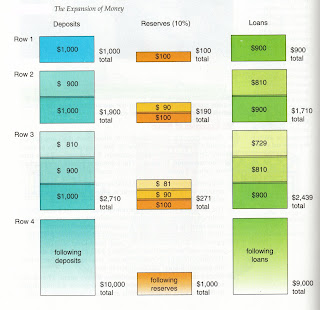Despite recent criticisms, I am going to post another blog today.
I found a really interesting blog just the other day. I like it because it seems the author shares the same contempt for the president as I do. The site is
CitizenSugar.
One of today's articles shows George Bush with an arm over the shoulder of Henry Kissinger waving to the crowd at the Economic Club of New York. I find it appropriate that two war criminals would appear together in a picture after the smug performance given by Bush last week at an annual roast. In his performance he mocked about many of the problems and inproprieties faced during his administration. If you have not heard the song, check out this link.
http://www.citizensugar.com/1109830But this is also interesting: the Top 10 reasons to impeach Bush.
http://youtube.com/watch?v=bKeOv7qme1U&feature=relatedAre you scared of this government yet? Maybe we should be. Remember why we created a Constitution with so many protections of our rights and liberties; it isn't to protect us from our neighbors, it is to protect us from our government.
Today I learned of a very frightening directive issued by the President in May of 2007. Essentially it gives the President near dictatorial powers in the case of a national emergency declared by the President. In other words, if the President wants to rule as a dictator, all he has to do is declare something a national emergency - a devastating hurricane that disrupts the economy, a terrorist attack on the US either in the US or abroad, an extremely potent strain of the flu - and then initiate Directive 51.
http://www.youtube.com/watch?v=mMs733gFg-IIt is time we started fearing our government. As we speak, the House of Representative is battling the White House and the Senate over a FISA (Foreign Intelligence Surveillance Act) and whether to grant phone companies retroactive immunity from criminal and civil cases for voluntarily turning over telephone and email records to the federal government - all done without a warrant. That is one important issue, but shouldn't we also be afraid of the fact that the government has access to this information without a warrant? And to go a step further, this information is only requested in the interest of National Security. Therefore, any individual who has his computer, telephone, or emails raided and is arrested will never get to know exactly what it is they did or said to get them arrested.
Our Constitution, Article 1 section 9 paragraph 2 guarantees Americans Habeas Corpus protections - the right to know the legal reason for one's arrest and detention. If no legal reason can be presented, then they are to be set free. Under FISA and the USA PATRIOT Act, the federal government is not required to present such information is national security is suspected to be in danger. And Habeas Corpus supposed to be just the first protection for those alleged to have violated the law. Due process must be maintained:
1) Grand Jury Indictment
2) The right to a speedy and public trial (not possible if it is a matter of national security)
3) The ability to present witnesses in defense (which would not be possible if you do not know from what actions you must defend)
Where does that leave the American citizen? It should leave us frightened that an individual who may be politically spoken against the government can be accused as a possible terrorist and arrested for federal crimes to which we may never be made aware. For example, I should be a little nervous about this email since I am speaking out against the government - although I am not advocating any form of violence.
What does this do to the American way of life? It cripples free speech, free press, right to assemble and petition the government. Without these cornerstones of American government how can democracy be possible? How can ideas be shared?
Throughout history, the United States has been an outspoken opponent to dictatorships and oppressive governments around the world. This is part of the reason why Iraq was invaded, why Iran and North Korea are part of the "Axis of Evil", why the US has pressured China for decades. Hitler, Stalin, Mussolini, Mao Zedong, Pol Pot, Maximilian Robespierre, Fidel Castro, and many others are world leaders that we learn in school were tyrannical and oppressive to their people, limited the ideas of freedom - speech, religion, press - and here is our government doing all that it can to do the same.
And yet we sit by and allow it to happen, and those who speak up, or try, are ridiculed, belittled, and isolated. We are accused of being unpatriotic, of being worse than terrorists, when the irony is that those doing the ridiculing are behaving in very fascist ways to help limit and stymie freedoms that we hold dear.
"The price of freedom is eternal vigilance."
PS I am in the process of finding the document Directive 51. I will share once I locate it.
PPS Adolf Hitler also had a Directive 51.



